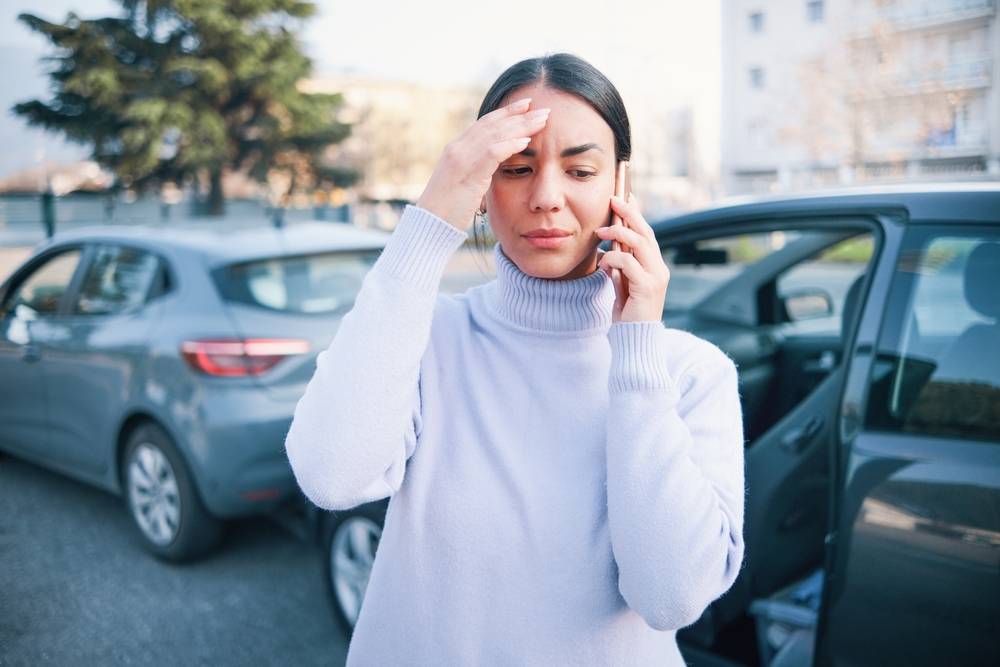After a car accident, knowing what information to exchange can make a stressful situation more manageable. It’s essential to gather key details to ensure a smooth claims process and legal compliance. The most important information to exchange includes names, contact details, insurance information, and vehicle registration details.
Each party should also document the accident scene with photos and note details like time, location, and weather conditions. Having a well-organized record can help in subsequent legal or insurance matters, ensuring clarity and accuracy. Witnesses’ contact information can also be valuable for corroborating events.
Don’t forget to also share driver’s license numbers and verify the validity of information exchanged. Accurate documentation can significantly ease the post-accident process, helping all involved parties navigate the situation more efficiently.
Having all of this information will help you and your car accident attorney in your next steps, should you decide to move forward with a personal injury claim.
Immediate Steps After a Car Accident
Taking the right steps immediately after a car accident can make a significant difference in ensuring the safety of everyone involved. After all types of car accidents, these steps are essential. They include securing the scene to prevent further accidents, checking for injuries, and calling for medical assistance if necessary.
Ensuring Safety at the Scene
The first priority is ensuring safety. Turn on hazard lights to alert other drivers. If it’s safe, move vehicles out of traffic to avoid causing additional accidents. Set up warning triangles or flares if available.
Ensure that everyone remains at a safe distance from the roadway. If the accident occurs at night or in bad weather, wear reflective vests if possible to increase visibility. Keeping safety as a top priority prevents additional harm.
Checking for Injuries
After securing the scene, promptly check for injuries. Begin with a self-assessment, then check on passengers. Ensure nobody has been thrown from the vehicle or is trapped. Visible injuries like bleeding or broken bones require immediate attention.
Avoid moving anyone who appears seriously injured unless there’s an imminent danger like a fire. Offer reassurance and keep injured individuals calm while waiting for professional help.
Calling for Medical Assistance
If there are accident injuries, call emergency services immediately. Provide clear and concise details of the accident, the number of people injured, and the nature of their injuries. Be ready to give your location using landmarks, mile markers, or GPS coordinates.
Even if injuries seem minor, it’s crucial to get a medical evaluation. Some injuries may not be immediately apparent but can develop complications later. Professional medical assistance ensures that all injuries are properly addressed.

Importance of Exchanging Information
Exchanging information at the scene of a car accident is critical for adhering to legal requirements and addressing insurance claims. It also helps to mitigate future liability issues.
Legal Requirements
Failing to exchange information at an accident scene can result in legal consequences. In most jurisdictions, drivers must provide their name, address, and vehicle registration number to the other party involved.
Additionally, drivers are often required to show their driver’s license to law enforcement officers or other individuals involved. Not adhering to these stipulations can lead to fines or other legal repercussions.
It’s essential to comply with these rules to avoid legal problems. Some areas may also require drivers to report the accident to local authorities if there is significant property damage or if anyone is injured.
Insurance Claims Process
For insurance claims, exchanging information is necessary to facilitate the process. Required information often includes the name, contact details, and insurance policy number of the involved parties.
This information is critical for filing claims with insurance companies. Providing accurate details can speed up the claim review process and ensure a fair assessment of damages.
Insurance companies use this information to determine liability and compensation. Failing to provide or obtain this information can complicate the claims process, potentially resulting in delays or denial of claims.
Avoiding Liability Issues
Obtaining information at the accident scene can help avoid future liability issues. Verifying the identity and insurance coverage of the other driver can prevent fraudulent claims.
Keeping records, such as photos of the scene and witness statements, can further protect individuals from liability. These records can be crucial evidence if disputes arise later on.
Clearly documenting the accident details helps establish facts accurately, reducing the risk of erroneous or exaggerated claims. Sharing comprehensive information at the scene is a practical step in mitigating long-term legal and financial repercussions for all parties involved.
Essential Information to Exchange
Exchanging specific details after a car accident is crucial for resolving any issues that may arise. These include driver and vehicle information, insurance documentation, and obtaining contact information from witnesses.
Driver’s License Details
Share the full name, driver’s license number, issuance state, and expiration date. This confirms the identity and licensing status. Verify that the information matches the driver involved in the accident. Both parties should take a photo of each other’s driver’s license for accurate record-keeping.
Vehicle Registration Information
Exchange the vehicle registration card that includes the vehicle’s make, model, and license plate number. This proves ownership and verifies the details of the automobiles involved. Record the Vehicle Identification Number (VIN) for further verification. Ensure all details are clear and legible in photographs.
Insurance Documentation
Provide the insurance company’s name, policy number, and contact information. Confirm the policyholder’s name matches the driver. Take photos of the insurance cards, ensuring all details are readable. Both parties should note the coverage types and limits to understand potential liabilities and claims.
Gathering Contact Information
Exchange phone numbers, email addresses, and physical addresses. Keep communication open for further discussions or documentation needs. Verify the contact information on record aligns with what has been shared. Collect this information in an organized manner to ensure effective follow-up.
Witness Statements and Details
Gather names and contact details of any witnesses, including their phone numbers and email addresses. Witnesses can provide crucial third-party accounts of the incident. Record their statements as soon as possible while details are fresh. Ensure their involvement is documented with consent for future reference.
Documenting the Accident
Gathering accurate details after a car accident is crucial. Some of the key tasks involve taking clear pictures of the scene, noting the exact time and location, and writing down immediate observations.
Photographic Evidence of the Scene
Taking photos of the accident scene is essential. Use a smartphone or camera to capture images from multiple angles. Ensure to photograph:
- Both vehicles, showing the position of each.
- Damage to all involved cars.
- Skid marks, debris, and any surrounding property damage.
Including close-ups and wide shots helps provide a comprehensive view. Photos of traffic signs, signals, and road conditions offer additional context, which can be critical in resolving disputes or clarifying details.
Recording the Exact Time and Location
Note the exact date, time, and location of the accident immediately.
Write it down as soon as possible, as this information is crucial for insurance claims and reports. GPS-enabled devices can provide precise coordinates, enhancing accuracy. Keeping a record of this data helps verify the sequence of events, and corroborates witness statements and other evidence. Use the following format to record details:
- Date: YYYY-MM-DD
- Time: HH
- Location: Street Address or GPS Coordinates
Writing Down Your Observations
Write down everything you observe immediately after the accident.
This includes the behavior of the other driver, any statements they made, and the condition of the road. Use a notebook or a mobile app to jot down:
- Weather conditions (e.g., raining, sunny).
- Traffic conditions (e.g., heavy, light).
- Any unusual circumstances (e.g., road construction, detours).
Accurate, timely notes can be vital in understanding the incident later on and assist authorities in their investigations.
After the Accident
After a car accident, it is vital to manage the situation by properly exchanging information and avoiding common mistakes. Seeking legal assistance and understanding your rights are also important steps for protecting yourself.
Common Mistakes to Avoid
Failing to call the police is a critical error. Police reports can serve as essential evidence if legal action is needed. Not seeking immediate medical attention, even if no injuries are apparent, can lead to health complications and weaken any legal claims. Admitting fault at the scene can complicate legal proceedings; always avoid making statements that may be construed as admissions of guilt.
Seeking Legal Assistance
Contacting Armada Law for legal consultation can help in navigating the complexities following a car accident. A personal injury lawyer from our firm provides crucial advice on dealing with insurance companies and understanding the legal implications of the accident. We also represent you in court if needed, ensuring that your rights are defended and you receive fair compensation. Legal advice is invaluable, especially when injuries or significant property damage are involved.
Understanding Your Rights
Understanding your rights is essential for moving forward after a car accident. Victims have the right to seek compensation for medical expenses, lost wages, and property damage. Additionally, they should be informed about the next steps, such as filing insurance claims and possible legal recourse. Knowledge of one’s rights can empower individuals to make informed decisions, safeguard their interests, and ensure fair treatment throughout the post-accident process.


